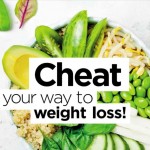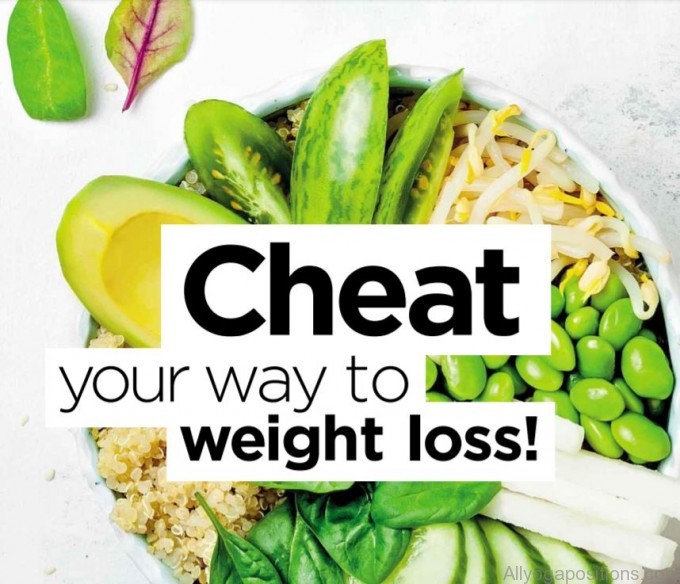You know the feeling: you’re spending hours in the gym and trying to cut the carbs to fit into that holiday bikini. But, try as you might to stop at one slice of pizza, you just can’t. Before you know it, one piece becomes six and you’re soon contemplating a crash diet or scanning the shelves for slimming pills. Well stop right there, says Jackie Wicks, weight-loss expert and author of new book Cheats & Eats (Healthspan, £9.99), there’s a healthier and altogether easier way to lose pounds fast. And even better news, it involves eating more, not less. The secret? Just start loading up your plate with vegetables. ‘Put 100 doctors and diet experts in a room, and everyone would disagree about the best way to lose weight,’ says Wicks. ‘But the one thing they’d all agree with is that eating vegetables and other plantbased foods such as beans and pulses will help you drop pounds – as well as increase your energy and boost your overall health.’
Cheat your way to weight loss! Photo Gallery
FEEL FULLER FOR LONGER
So why are vegetables a slimmer’s best friend? ‘Not all calories are created equal,’ reminds Wicks. Low-energy, high-nutrientdensity foods such as vegetables, fruits, pulses and beans are low in calories while high in water and fibre to keep you feeling full, plus a rich source of micronutrients to help your metabolism function at its best. ‘Eating 100 calories of peppers, cucumbers or spinach will make you feel fuller for longer than eating 100 calories of pasta or rice (high-energy, low-nutrientdensity foods),’ says Wicks. Foods with a higher water content keep you satisfied longer, and your stomach digests fibrerich foods slower than processed foods, meaning it’s longer before you get hunger pangs. A study published in Nutrition Journal (2010) showed that people who ate low-nutrient-density foods tended to be hungrier more often than people with high-nutrient-density diets. ‘That may be why, when you eat a sandwich for lunch, you end up craving a latte and a scone just a few hours later,’ says Wicks. ‘When eating a diet high in vegetables and fruits, your body doesn’t have the same hormonal reactions as it would on a portioncontrolled diet. Your blood sugar and insulin are relatively stable and your body doesn’t freak out about having enough food to fuel itself.’ You feel full, and because you’re eating enough during the day, you won’t start snacking after dinner.
EAT MORE, WEIGH LESS
Find it hard to stick to portion-controlled diets? ‘Your stomach needs food, it wants to feel full and vegetables are the easiest way to make it feel satisfied,’ says Wicks. ‘The typical portion-control strategies set you up to eat a restricted amount of very low-quality-nutrient foods. One piece of pizza rarely fills you up because there are very few good-quality nutrients in it, and only foods with a high-nutrient profile can curb your hunger.’ For example, 100 calories of cooked kale is about 350g while 100 calories of pizza (about half a slice) is 75g. So, while you’ve eaten the same number of calories, the kale will make you feel fuller.
Simply increasing the amount of veg or pulses in your diet is more effective for weight loss than controlling or reducing portion sizes of any food, confirms research. And people who eat high-nutrient foods not only tend to weigh less than people who eat more low-nutrient foods, but they also eat more food. Yup, that’s right, they eat more food but weigh less. ‘Building your meals around plant-based foods will mean you can eat more food but still lose weight – and this has been proven by scientific research,’ confirms Wicks. No longer will you have to worry about over-eating. ‘Research shows that even if you eat a bigger amount of low-energy, high micronutrient foods such as veg or pulses than you would of high-energy, low-micronutrient food such as pizza, you’ll end up eating fewer calories,’ says Wicks. ‘Vegetables really are the best diet pill in the supermarket!’
EAT UP, BURN FAT
Vegetables not only keep you feeling full, they help you burn fat too. ‘When you increase the amount of high-nutrient foods you eat, especially broccoli, mushrooms, onions, greens and berries,’ says Wicks, ‘you’re eating a diet that fights angiogenesis (a process that results in the growth of new blood vessels from pre-existing vessels), making it hard for fat to get its own blood supply and grow.’ Pharmaceutical companies are now looking at ways to turn these properties into drugs. But a far healthier solution is to simply eat your 5 A Day.
Table of Contents


